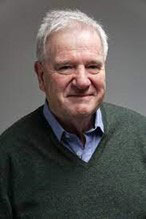Paul Drew, Professor, Department of Language & Linguistic Science
Paul was appointed as lecturer to the University of York (Sociology) in 1973, subsequently SL (1994) and Professor (2003). He was awarded his PhD at Lancaster University in 1977.

Paul re-joined York as Professor in Language and Linguistic Studies in 2018. He has held had various visiting positions in China (OUC), Denmark (SDU), Finland (Helsinki), Sweden (Lund), and the United States (UCLA).
His research focuses principally on language use in ordinary social interaction and in medical communication.
email: paul.drew@york.ac.uk
Our 60-second interview with Paul:
Could you please tell us what work you do in the field of mental health?
I haven’t done as much work in the field of mental health as I’d have liked – I published a paper long ago on suicide notes and more recently a paper led by Annie Irvine on interviewing people with depression. Over the past 3 years I’ve been conducting research with Annie on the telephone delivery of the NHS’s IAPT service, renamed Talking Therapies, a form of guided self-help based on cognitive behavioural therapy (CBT) principles. We’ve been studying recordings of conversations between PWPs (Personal Welfare Providers) and patients, focusing on how IAPT was delivered. Our overall conclusion was that practitioners had difficulty navigating the tension between delivering a patient-centred experience whilst simultaneously adhering to system protocols and administrative requirements – some of the conversational practices used by PWPs have a system-led, protocol driven or ‘bureaucratic’ format which tended to side-line patients’ experiences and concerns.
What do you find most rewarding and inspiring in this work?
In my other medical research, it is particularly rewarding to conduct research in collaboration with clinicians, research that addresses their clinical concerns. For instance, it’s difficult for neurologists to correctly diagnose whether patients have experienced epileptic or non-epileptic seizures (their diagnoses have been only 52% accurate). Working with neurologists has enabled us to identify linguistic features of patients’ accounts of their seizure experiences that result in more accurate diagnoses (82% correct). Patients benefit from these results, and that is most rewarding.
What is the most challenging or complicated aspect of this work?
Our methodology in conversation analysis (CA) involves reviewing video/audio recordings of encounters in the clinical settings, such as recordings of patients talking to PWPs in the Talking Therapies programme, or doctors giving news to parents about their baby’s difficulties, in neonatal critical care. Listening to patients’ accounts of their troubles or witnessing parents’ inconsolable distress when being given news about their baby’s diagnosis or prognosis is challenging.
What impact do you hope your work is having - or can potentially have?
I am not sanguine about the possibility of impacting the NHS’s Talking Therapies programme in the way we’d like. In neonatology we’re more successful; we give training workshops for neonatal doctors (another is planned here at York in November), during which we share with them not only the results of our research but also the insights which lay behind our results. These workshops enable neonatal doctors to explore different ways of talking to parents, and the different outcomes that might be associated with each approach. Ultimately, the impact we hope for is to enhance the effectiveness of conversations between doctors and parents, to enhance the role that parents make in making decisions about their babies’ care.
Could you share with us one piece of advice that you follow for your own mental health?
It’s difficult to say this, but I can’t. I don’t offer advice for mental health problems, and if I did have such advice I’d be the last to follow it.